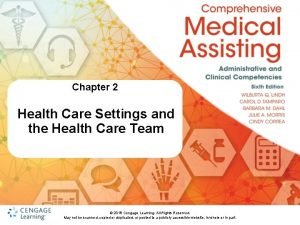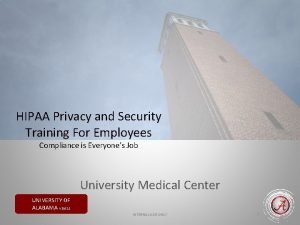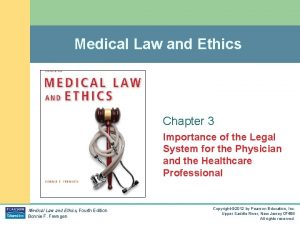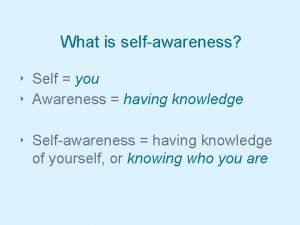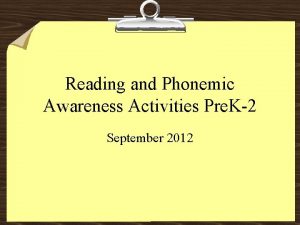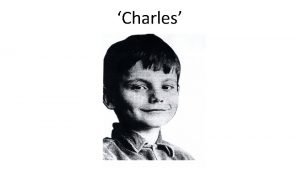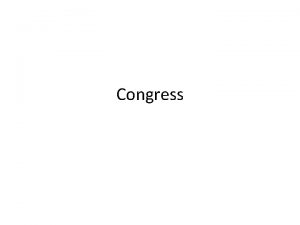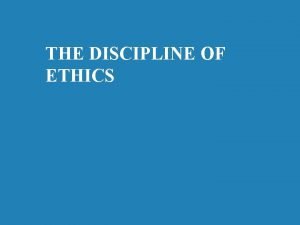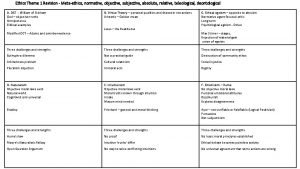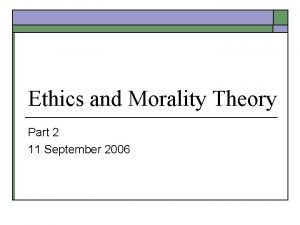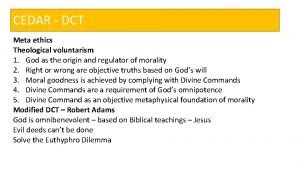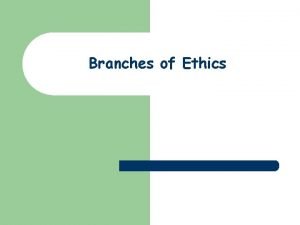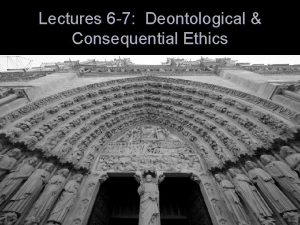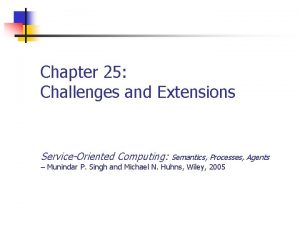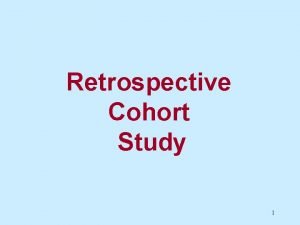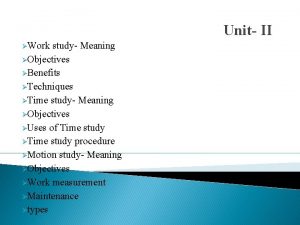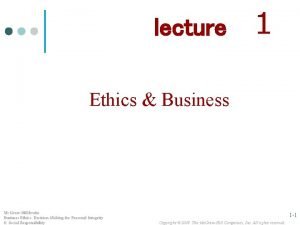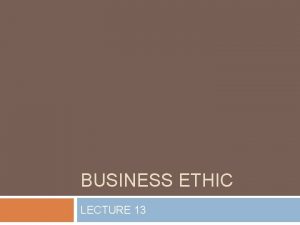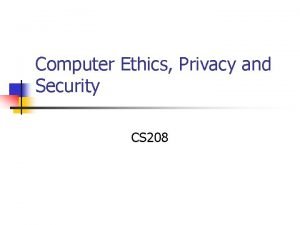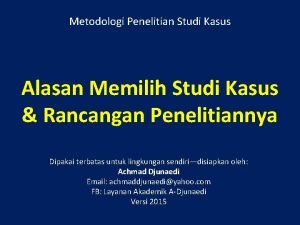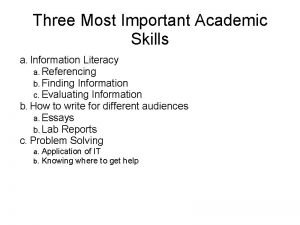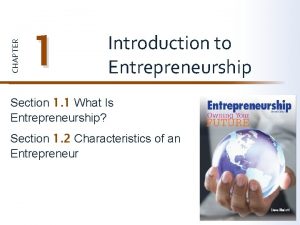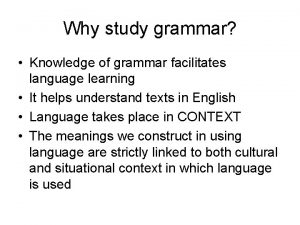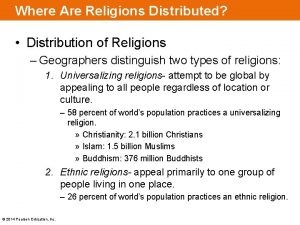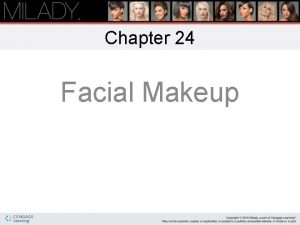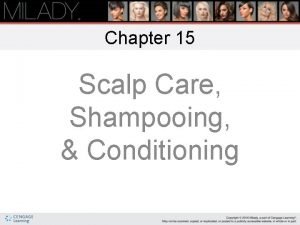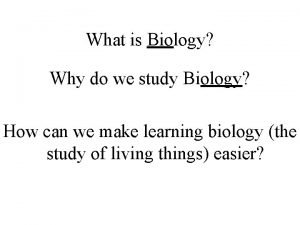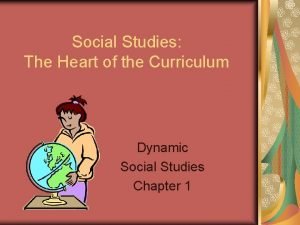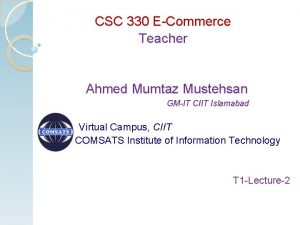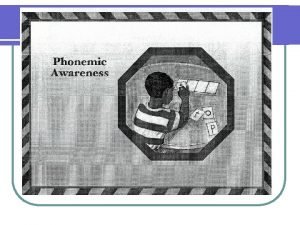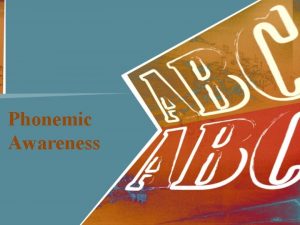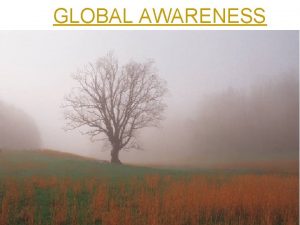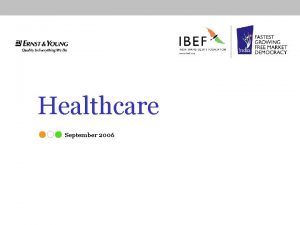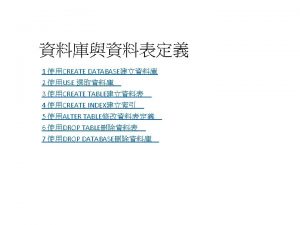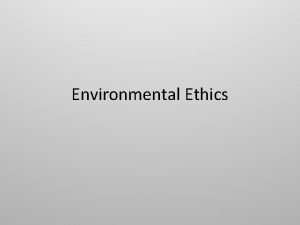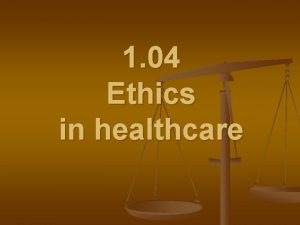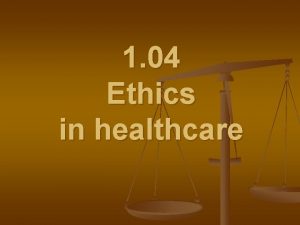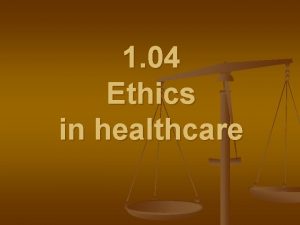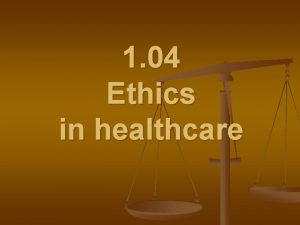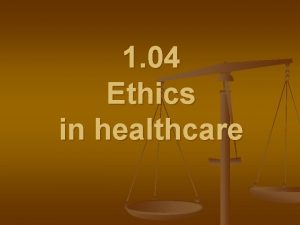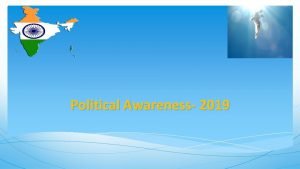ETHICS Why study Ethics of Healthcare Create awareness



































































- Slides: 67

ETHICS

Why study Ethics of Healthcare? • Create awareness of other perspectives • Sensitise ourselves to the reason for our beliefs • Enable conclusions which embrace both of the above • Develop skills in constructing reasoned arguments • Introduce a variety of ethically sensitive issues in medicine • Try to find the best solutions based on human rights

3 important approaches to help that guide difficult decisions are: 1. Laws 2. Professional codes and guidelines 3. The principles and theories of ethics

Our own natural decision-making abilities are often included: • Our own beliefs • Science • Common sense

What we use for our decisions: 1. Laws 2. Professional codes and guidelines 3. The principles and theories of ethics • Our own beliefs • Science • Common sense

• Laws can be arbitrary (even if not obviously so). • Laws can be injust (at least in some situations). • Laws may not expressly address the issue at hand. • Common sense and our personal beliefs may be different. • Science might help to clarify an issue , but eventually not help to protect human rights.

How can Philpsophy help? Ethical theories and value judgements can help with: • Clarity: reasoned understanding of the own position • Plurality: consideration of other positions • Awareness: understanding criticism ot the own position and preparation of counterarguments against them • Flexibility: ability to adjust the position in accordance to new events and information • Justification: stated clear arguments in support of the own position and decision


PERSPECTIVE

. . . Doctors are more frequently accused of malpractise or negligence for reasons of poor communication with patients than any other reason. So communication skills have to be trained!

MEDICAL ERROR Physicians not only work under uncertainity; they also may make mistakes. A 1999 Institute of Medicine (IOM) report on medical error estimated that between 44. 000 and 98. 000 Americans die each year as a result of medical errors, as many as those who die of vehicular accidents, breast cancer, or acquired immunodeficiency syndrome (AIDS). Jonson, Siegler, Winslade: Clinical Ethics, Mc Grqw-Hill, 6 th edition, pages 22 ff.


Accountability and team work: Easier or more difficult to achieve? Advantages /Disadvantages for • Patients • Doctors ?


Ethical theories: Immanuel Kant and the deontology (duty-based) 1. Act in such a way that your actions can and ought to be universalizable 2. Treat people as ends in themselves and never solely as means to an end 3. Act in such a way as you would have others act towards you

Ethical theories cont. : Consequentialism • Casuistry • Contextualism • Virtue ethics • Intuitionism • Relativism • Pragmatism • Liberalism • Ethics of Care • Rights • Principlism (Autonomy, Beneficience/ nonmaleficience, Justice, Utility, Truth )

The Goals of Medicine 1. Promotion of health and prevention of disease 2. Maintenance or improvement quality of life through relief of symptoms, pain, and suffering 3. Cure of disease 4. Prevention of untimely death 5. Improvement of functional status or maintenance of compromised status 6. Education and counceling of patients regarding their condition and prognosis 7. Avoidance of harm to the patient in the course of care 8. Assisting in a peaceful death

A Practical Approach to Clinical Ethics

MEDICAL INDICATIONS 1. The Principles of Beneficience and Nonmaleficience PATIENT PREFERENCES 2. The Principle of Respect for Autonomy QUALITY OF LIFE 3. 1 + 2 CONTEXTUAL FEATURES 4. The Principle of Loyalty and Fairness

In medical history decision making was paternalistic. Replaced by patient autonomy this shift is exemplified in the legal requirement of informed consent to treatment. Shared decision making is now the ideal. But: The patient is the ultimative and authoritative decision maker, because he or she alone determines what will be done to his or her body and how this action will affect his or her life.

Special cases in the clinical relationship: • Children (minors) • Persons with mental disorders or disabilities

Rights, that have to be discussed are concerning 1. Patients 2. Practitioners 3. Society

What every person should know: 1. The HUMAN RIGHTS 2. The New Hippocratic Oath

The universal declaration of HUMAN RIGHTS (1948) Article 1 Because all human beings are born free and equal in dignity and rights, they should act as brothers towards each other.

Article 2 No distinction should be made determined by color, nationality, politics, possessions, race, religion, sex, or status.

Article 3: Everyone has the right to life, liberty and security of person.

Article 4: No one shall be held in servitude or slavery.

Article 5: No one shall be subjected to torture, degrading treat or punishment.

Articles 6, 7, 8, 9, 10 and 11: No one shall be disenfranchised of law. . .

Article 12: Everyone has the right to privacy of correspondence, family and home. Honour nor reputation shall be attacked.

Article 13: Everyone has the right of freedom and movement.

Articles 14 and 15 concern asylum and nationality. These articles have little medical relevance.

Article 16: Everyone has the right to marry and procreate.

Article 17: No one shall be arbitrarily deprived of the right to own property.

Article 18: Everyone has the right to freedom to observe and practice religion.

Article 19: Everyone has the right to hold opinions and impart ideas without interference.

Articles 20 and 21: These concern participation in political activities.

Article 22: Everyone has the right to social security.

Articles 23 to 30: These deal with rights to work, remuneration, leisure, education and culture.

The New Hippocratic Oath – 1998 • Patients Rights I promise that my medical knowledge will be used to benefit people‘s health. Patients are my first concern. I will listen to them, and provide the best care I can. I will be honest, respectful and compassionate towards patients. I will do my best to help anyone in medical need in emergencies. I will make every effort to ensure that the rights of all patients are respected, including vulnerable groups who lack means of making their needs known.

I will exercise my professional judgement as independently as possible, uninfluenced by political pressure or by the social standing of my patient. I will not put personal profit or advancement above my duty to my patient.

I recognize the special value of human life, but I also know that prolongation of human life is not the only aim of Healthcare. If I agree to perform abortion I agree that it should take place only within an ethical and legal framework.

I will not provide treatments which are pointless or harmful or which an informed and competent patient refuses. I will help patients find the information and support they want, to make decisions on their care.

I will answer as truthfully as I can, and respect patients‘ decisions unless that puts others at risk of substantial harm. If I cannot agree with their requests, I will explain why. If my patients have limited mental awareness, I will still encourage them to participate in decisions as much as they feel able. I will do my best to maintain confidentiality about all patients. If there are overriding reasons which prevent my keeping a patient‘s confidentiality I will explain them. I will recognize the limits of my knowledge and seek advice from colleagues when needed. I will acknowledge my mistakes.

I will do my best to keep myself and my colleagues informed of new developments and ensure that poor standards or bad practices are exposed to those who can improve them. I will show respect for all those with whom I work and be ready to share my knowledge by teaching others what I know. I will use my training and professional standing to improve the community in which I work.

I will treat patients equitably and support a fair and humane distribution of health ressources. I will try to influence positively authorities whose policies harm public health. I will oppose policies which breach internationally accepted standards of human rights. I will strive to change laws which are contrary to patients‘ interests or to my professional Ethics.

While I continue to keep this Oath unviolated, may it be granted to me to enjoy life and the practice of the Art respected by all, in all times.

Rights of • Practitioners They have a right not to be exploited commercially either by their employers or by their patients.

Rights of • Society In many societies, the costs and opportunities for doctors to acquire their professional training comes from the society itself, that society has the right to expect the doctors it has trained to serve the society by way of appreciation and repayment.

How do we (for owerselves) place value on life? There are essentially 3 elements to consider when determining the value of life: • Quality • Quantity • Sanctity The quality of life criterion asserts that there is a difference between the type of life and the fact of life. This is the primary difference to the sanctity criterion! The sanctity criterion asserts: • All life is worth living under any condition because of • the inherent value of life.

Quantity might not be identical with quality but, often, increased quantity in medicine can be equal to cure or control of disease and hence does enhance quality of life. The Compression of Morbidity principle cited by Downie and Calman is useful for guiding these decisions: Compression of morbidity principle: the objective of increasing life-span should be associated at the same time with an increasing quality of life or reduction of disability. In distribution of resources this model for decision making is sometimes applied: (Consequentialism) • the greatest amount of good for (least amount of harm) • the greatest amount of time for • the greatest number of people Which problems arise with this theory?

World Medical Association Declaration of Helsinki: Ethical principles for medical research involving human subjects (adopted by the 18 th WMA General Assembly Helsinki, Finland, June 1964. . . Edinburgh, Scotland, October 2000) Introduction: The World Medical Association has developed the Declaration of Helsinki as a statement of ethical principles to provide guidance to physicians and other participants in medical research involving human subjects.



Innovative treatment Most clinical activity involves familiar procedures and medications, many of which have never undergone the close scrutinity of a formally designed clinical trial. Their efficacy is attested only by cumulative experience. New treatments are constantly being devised by commercial firms and by individual physicians.

Recommendations Policy, regulation, and the requirements of most research institutes insist that investigators take the following actions: 1. Disclose their financial interests to the institution and even to the research subject 2. Identify their financial affiliations in any published papers 3. Divest themselves of substancial interests 4. Participate in mechanisms to ensure the validity of data, such as outside peer review 5. Physicians who have deep involvement with drug sponsors should recuse themselves as investigators for the products of these companies.


The most important human endeavor is the striving for morality in our actions. Our inner balance and even our very existence depend on it. Only morality in our actions can give beauty and dignity to life. -- Albert Einstein

The American lives even more for his goals, for the future, than the European. Life for him is always becoming, never being. -- Albert Einstein

Conclusion? ? ? • Being and • Becoming Responsibility for present and future generations!

The ideals which have always shone before me and filled me with the joy of living are goodness, beauty, and truth. To make a goal of comfort or happiness has never appealed to me; a system of ethics built on this basis would be sufficient only for a herd of cattle. -- Albert Einstein

What spirit is so empty and blind, that it cannot recognize the fact that the foot is more noble than the shoe, and skin more beautiful that the garment with which it is clothed? -- Michelangelo

All religions, arts and sciences are branches of the same tree. All these aspirations are directed toward ennobling man's life, lifting it from the sphere of mere physical existence and leading the individual towards freedom. -- Albert Einstein Only a life lived for others is a life worth while. -- Albert Einstein

The real problem is in the hearts and minds of men. It is not a problem of physics but of ethics. It is easier to denature plutonium than to denature the evil from the spirit of man. -- Albert Einstein

When we show our respect for other living things, they respond with respect for us. Native Indian Proverb

Love, by its very nature, is unworldly, and it is for this reason rather than its rarity that it is not only apolitical but anti-political, perhaps the most powerful of all anti -political human forces. -- Hannah Arendt

The New Hippocratic Oath – 1998 Remember: . . . to Help or at Least Not to do Harm !
 Hey hey bye bye
Hey hey bye bye Healthcare and the healthcare team chapter 2
Healthcare and the healthcare team chapter 2 Sports medicine meaning
Sports medicine meaning Privacy awareness and hipaa privacy training cvs
Privacy awareness and hipaa privacy training cvs Apa itu mutiple queue dan one way list
Apa itu mutiple queue dan one way list Why study ethics
Why study ethics Importance of medical law
Importance of medical law Ethics in healthcare definition
Ethics in healthcare definition Outdoor code
Outdoor code Don't ask why why why
Don't ask why why why What is selfawareness
What is selfawareness Phoneme substitution
Phoneme substitution Why do people create, structure, and change government?
Why do people create, structure, and change government? Engineers marking out table
Engineers marking out table Who is narrating the short story charles?
Who is narrating the short story charles? Why did the framers create a bicameral legislature
Why did the framers create a bicameral legislature Us board
Us board Why can banks create money
Why can banks create money What is environmental ethics
What is environmental ethics Normative ethical questions
Normative ethical questions Macro ethics definition
Macro ethics definition 6075 meaning
6075 meaning Meta ethics vs normative ethics
Meta ethics vs normative ethics Descriptive ethics vs normative ethics
Descriptive ethics vs normative ethics Beneficence examples
Beneficence examples Metaethics vs normative ethics
Metaethics vs normative ethics Branches of ethics
Branches of ethics Deontological ethics meaning
Deontological ethics meaning Teleological ethics vs deontological ethics
Teleological ethics vs deontological ethics Challenger case study in professional ethics
Challenger case study in professional ethics Enron ethics case study
Enron ethics case study Volkswagen business ethics case study
Volkswagen business ethics case study What is case series
What is case series Retrospective cohort study
Retrospective cohort study Work study definition
Work study definition Study less study smart
Study less study smart Phytogeographical zones of india
Phytogeographical zones of india Distinguish between motion study and time study
Distinguish between motion study and time study Time and motion study example ppt
Time and motion study example ppt What is ethics and why is it important
What is ethics and why is it important Information is neutral and amoral
Information is neutral and amoral What is computer ethics and why is it important
What is computer ethics and why is it important Why do we study thermodynamics
Why do we study thermodynamics Financial markets and institutions chapter 1
Financial markets and institutions chapter 1 Biotechnology
Biotechnology Rancangan penelitian studi kasus
Rancangan penelitian studi kasus Nature of development economics
Nature of development economics Why study earth science
Why study earth science What are study skills and why are they important
What are study skills and why are they important Syntax is the study of
Syntax is the study of What are study skills and why are they important
What are study skills and why are they important Why study entrepreneurship
Why study entrepreneurship Nature of business finance
Nature of business finance Language
Language 3 major branches of christianity
3 major branches of christianity Paragraph in english
Paragraph in english Why study entomology
Why study entomology Issues in operations management
Issues in operations management Milady makeup chapter
Milady makeup chapter When manipulating the scalp during a shampoo
When manipulating the scalp during a shampoo Why study money
Why study money Automata theory stanford
Automata theory stanford Why do we study biology?
Why do we study biology? Why social study is important
Why social study is important Why study e commerce
Why study e commerce Why study e commerce
Why study e commerce Why study plants
Why study plants Carbohydrates
Carbohydrates

